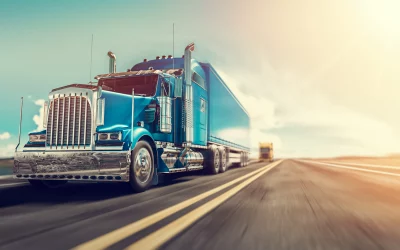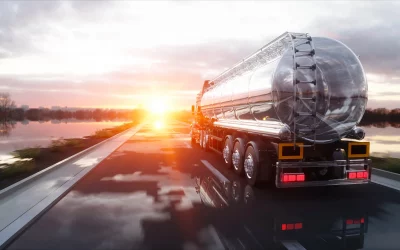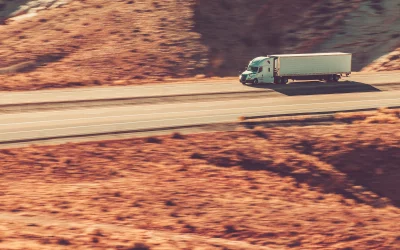Denver Dump Truck Accident Law Firm
Every day, the vast population and number of visitors in Denver create tons of waste. Roads need ongoing maintenance, and new roads and construction zones keep dump trucks active on a daily basis.
This implies that a significant number of huge trucks transport heavy cargo all across the city on a daily basis. With more trucks on the motorways and on the open road, you’re more likely to get involved in a collision with one of these behemoths.
Dump trucks, even when empty, are so heavy and large that they may easily crush passenger trucks and cars, particularly tiny and subcompact cars.
Dump and garbage trucks in Denver cause injuries
Due to the size of a dump truck or a trash truck, such accidents are more likely to result in serious or catastrophic injuries. Fatalities are also more common in accidents involving huge cars.
Secondary injuries, such as infections in open wounds, may occur, particularly if your immune system is weakened. Furthermore, certain accident injuries may aggravate pre-existing ailments and disorders. Because you would not have endured the additional medical expenditures and pain and suffering for your existing conditions if the at-fault parties had not been at fault, the at-fault parties may be held liable for those damages.
Accidents involving dump and garbage trucks have a variety of causes.
Accidents are caused by heavy truck drivers in some circumstances, and third parties in others.
The following are some of the reasons of large truck accidents:
A tired driver
Driving under the influence of narcotics, alcohol, illegal substances, or prescription medicines
Distracted driving
A medical issue such as a seizure
A faulty car
Inclement weather
A third party driver who causes the truck driver to lose control, such as those who merge too close in front of a truck or sideswipe a car
A truck inspector who is oblivious to problems with the car
A repair worker who mistakenly installs new components
The driver’s employer or insufficient job training
Crashes involving commercial vehicles are often problematic since the event may not be the driver’s fault or the driver may share blame for the accident. If three persons or firms are jointly responsible for an accident, you’ll need to negotiate with three distinct insurance providers.
If you decide to go to court, you must provide various persons copies of the court filings and discovery. Each individual has their own attorney, as does their insurance company. This implies that in a case with three defendants, you may need to communicate with up to six different lawyers!
What to Do If a Dump or Garbage Truck in Denver Causes an Accident
Follow these instructions if you can walk about without causing yourself more injury:
Contact the emergency services.
Look for additional people who may have been involved in the collision and take images of the scene. Make careful to photograph all of the damage to your car and truck from all angles. Include images of any road, mailbox, fence, utility pole, or other damage.
Allow the EMTs to examine you for injuries.
Make a statement to the officer.
Never confess blame to anybody. Never make an apology on the spot.
When the police have released you from the accident site, proceed to the hospital to be properly examined by physicians. Notify the physicians that you were involved in an accident. Keep in mind that certain injuries and symptoms might take hours, if not days, to appear.
Wait for first responders to come if you can’t move without inflicting further injury. Allow the ambulance to transport you to the nearest hospital for medical attention.
When you’re ready, contact a truck accident attorney for a free case examination. If you are unable to contact yourself, a loved one should do so on your behalf. A personal injury lawyer may be able to visit you in the hospital or meet with you through video or voice call to discuss your case. Your lawyer may report the accident to the insurance company.
Who Is Liable for My Garbage Truck or Dump Truck Injuries?
When you’re in a collision with a commercial car, more than one individual may be liable for your injuries and property damage. Your truck accident attorney will analyze your case to see whether someone other than the driver should share in the money you are entitled to. A demand letter will be sent to the relevant insurance companies by the lawyer.
Collaboration with Insurance Providers After a Truck Accident in Denver
Some individuals choose to tell their insurance company of the accident personally since some insurance companies only allow you a limited amount of time to notify them. If you want to notify the insurance company of the accident, provide them just your name, contact information, the date and location of the accident, the other driver’s insurance policy number, and the contact information for your attorney.
You can be pressured by the insurance company to tell them what occurred. Continue to direct them to talk with your attorney only. One of the tricks an insurance company might use to deny or underpay a claim is to twist your words in an attempt to place blame on you.
Damages Recovering In the aftermath of a Denver truck accident,
Following a Denver dump or garbage truck collision, you may be able to recover three types of damages: economic damages, non-economic damages, and punitive damages.
In an attempt to make you whole again, the court awards you economic and non-economic damages. While this money will not bring a loved one back or heal your injuries, it will alleviate financial stress, particularly for those who have long-term or permanent disabilities as a result of the accident.
Note that the court only imposes punitive damages as a sanction against the defendant. They are not intended to make you whole again, and courts rarely award them.
Economic Damages
Economic damages, also known as special damages, have a monetary value.
Medical expenses, including past expenses incurred as a result of the wreck and before a settlement or trial award, as well as future expenses incurred after a settlement or trial award.
Surgical costs, medical appointments, follow-up appointments, physical therapy, occupational therapy, cognitive and other psychological therapies, hand controls for cars, ambulatory aids, prescriptions, and changes to your home, such as grab bars and wheelchair ramps, are all examples of medical costs.
Wages lost, including those lost as a result of an accident injury and those lost as a result of a trial award or settlement. You may be able to recover damages for lost wages if you can work part-time or at a job that does not pay the same hourly rate or salary as before the accident.
Replacement or repair of personal property that has been destroyed or damaged, such as your car and items inside it, such as cell phones, computers, clothing, and other personal items.
Funeral, burial, and/or cremation costs.
Damages that aren’t economic
Because pain and suffering, as well as other emotional damages, cannot be quantified, general damages, also known as non-economic damages, do not have a monetary value.
Pain and suffering, including emotional distress
A loss of quality of life if you are forced to use ambulatory aids, take prescription medications, or undergo other life-altering changes as a result of the accident.
A loss of companionship if you are unable to participate in or enjoy family events and activities.
Loss of consortium if you can’t have a physical relationship with your spouse anymore.
Inconvenience if you need to hire someone to do your regular chores, such as housecleaning, grocery shopping, childcare, lawn care and maintenance, and home repairs and maintenance.
Loss of function in a body part, such as a hand or a leg.
Loss of a bodily function, such as your vision or bladder control.
Amputation, whether caused directly by the accident or as a result of secondary injuries such as infection.
Excessive scarring and/or disfigurement
Accident victims in Colorado can recover punitive damages if they can show that the defendant’s actions or inactions were grossly negligent. Because you can only recover punitive damages if the court orders the defendant to pay compensatory damages, you must have a bifurcated trial.
The jury hears evidence, deliverates, and awards compensatory damages in the first part of the trial. The jury hears evidence to determine why you should be awarded punitive damages and the amount of the award during the second part of the trial.
While obtaining punitive damages can be difficult, in some cases it is worthwhile. If your truck accident attorney believes you have a chance of recovering punitive damages after reviewing and investigating your case, they will let you know.
Colorado’s Statute of Limitations for Bringing a Truck Accident Case
The majority of people try to settle with insurance companies in order to recover damages. However, insurance companies may refuse to pay a fair and reasonable amount for your damages in some cases.
You have two years in Colorado from the date of the truck accident to file a lawsuit. While this may appear to be a long time, it is not, so you should contact a truck crash lawyer as soon as possible after the accident.
Keep in mind that you’ll use some of this time working on a settlement. If your personal injury lawyer needs to investigate the case before a trial in order to reach a fair and reasonable settlement, that takes time, as do doctor’s appointments and other matters.
Hiring a Truck Accident Lawyer in Denver
Many people are hesitant to schedule a free consultation with a truck accident attorney because they believe they won’t be able to afford it. If you’ve been injured in an accident, you’re probably not working and struggling to make ends meet. This is why we work on a contingency basis.
You have every right to seek compensation if you are injured in an accident. You should not be prevented from pursuing a damages award because you are unable to pay an attorney. When a personal injury lawyer agrees to take your case, you usually don’t have to pay anything unless they win.
When you come in for your free consultation and decide to hire a personal injury lawyer, you will be given a contingency contract that spells out when they will be paid their legal fees and costs. For more information on the payment structure of a personal injury attorney, speak with them.
What Can a Truck Accident Lawyer Do for You?
Some people try to settle their cases on their own, while others choose a personal injury attorney who has no experience with truck accidents by accident.
In both cases, the accident victims are oblivious to the fact that they have left money on the table.
Truck accidents differ from other types of car accidents in several ways, including the number of defendants who may be held liable and the types of injuries you may sustain.
A truck accident attorney communicates with insurance companies and hires investigators, expert witnesses, and others to help prove your case. If the insurance company refuse to offer a fair and reasonable settlement, a lawyer can ensure that the crooked defendants do not violate your rights during the trial.
When you don’t have to worry about your case, your stress levels drop, and you recover from accidents faster. A truck accident lawyer can also estimate future medical expenses and lost earning capacity to ensure that you have enough money to cover medical expenses now and in the future.
Don’t suffer in silence if you or a loved one was injured or killed in a dump truck or garbage truck collision in Denver. For a free case review, contact a truck accident lawyer.
Warrior Car Accident Lawyers
1902 W. Colorado Ave., Suite 100
Colorado Springs, CO 80904







